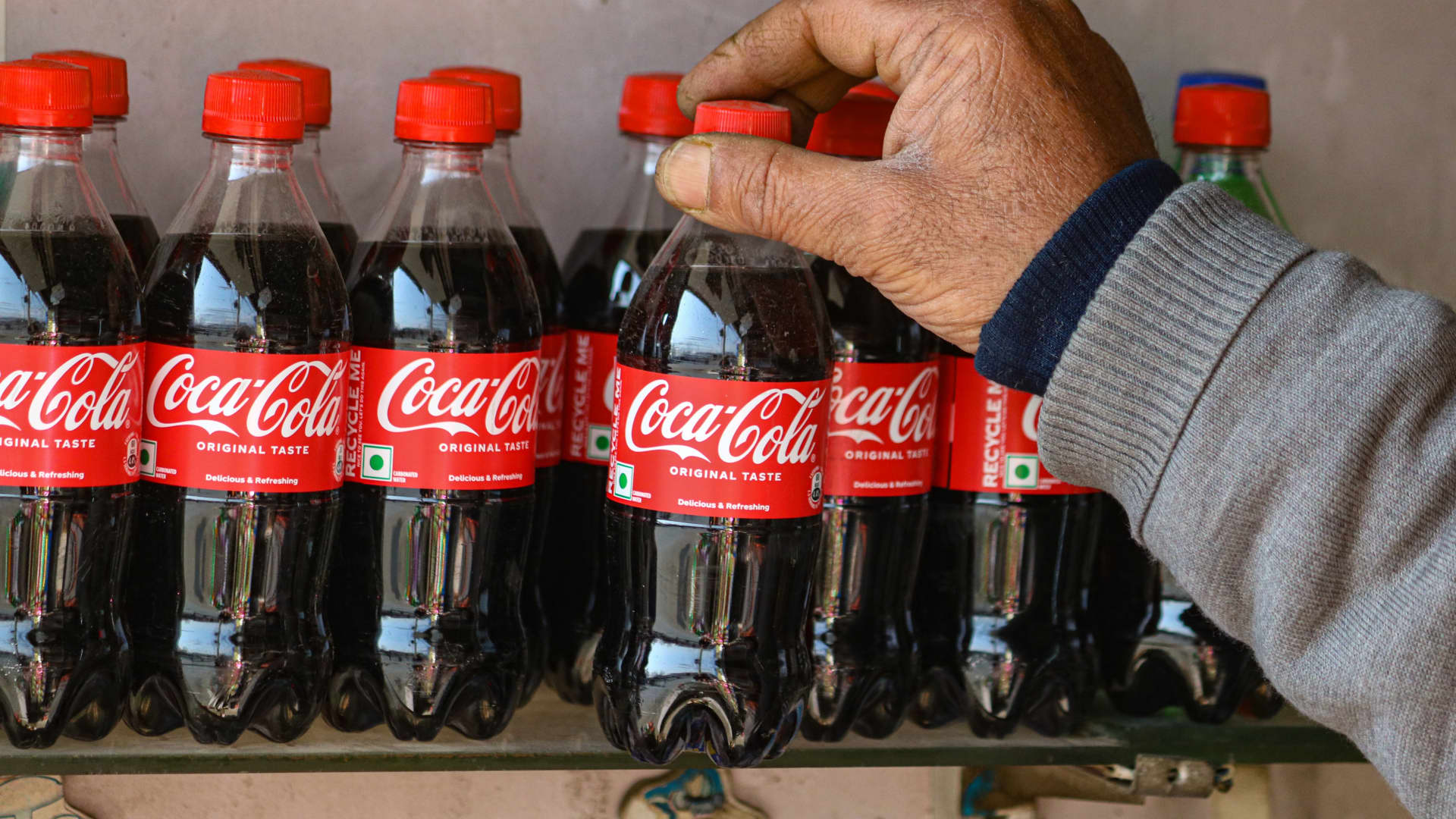Coca-Cola bottles are seen at a shop in Srinagar, Jammu and Kashmir, on Jan. 28, 2025.
Firdous Nazir | Nurphoto | Getty Images
Coca-Cola will shift more of its packaging from aluminum to plastic bottles if President Donald Trump implements his latest wave of tariffs, CEO James Quincey said Tuesday.
“As it relates to our strategies around ensuring affordability and ensuring consumer demand, if one package suffers some increase in input costs, we continue to have other packaging offerings that will allow us to compete in the affordability space,” Quincey said on the company’s earnings conference call. “For example, if aluminum cans become more expensive, we can put more emphasis on PET [plastic] bottles, etc.,” Quincey added.
Trump on Monday raised tariffs on all aluminum and steel imports to 25% from 10%, starting next month. The action is widely seen as taking aim at China, although the U.S. imports little steel directly from the country.

Quincey downplayed the financial hit for Coca-Cola from the tariffs, although he said on CNBC’s “Squawk on the Street” that the company buys some aluminum from Canada.
“I think we’re in danger of exaggerating the impact of the 25% increase in the aluminum price relative to the total system,” Quincey said on the conference call. “It’s not insignificant, but it’s not going to radically change a multibillion-dollar U.S. business, and packaging is only a small component of the total cost structure,” the CEO added.
In addition to shifting to more plastic packaging, Coca-Cola can also blunt the effects of duties on its business by finding domestic aluminum sources and increasing the price for customers, Quincey added.
Aluminum is generally more expensive than plastic, but it is also infinitely recyclable and one of the most commonly recycled materials. In recent years, the company has shifted to adding more aluminum packaging options, such as canned Dasani and Smartwater.
PET, or polyethylene terephthalate, is a lightweight plastic that can be easily recycled but is recycled at a lower rate than aluminum. The recycling rate of PET bottles and jars was 29.1% in 2018, compared with the recycling rate of aluminum beer and soft drink cans at 50.4% in the same year, according to data from the Environmental Protection Agency.
Even as Coca-Cola has tried to use more aluminum, the company has been named the world’s worst polluter by Greenpeace for six straight years for its single-use plastic usage.
Just two months ago, Coca-Cola slashed its sustainability goals. The beverage giant now aims to use 35% to 40% recycled material in packaging by 2035, down from its prior target of 50% recycled material by 2030. The company also said it wants to “ensure the collection” of 70% to 75% of the equivalent number of bottles and cans it introduces annually, rather than recycling the plastic equivalent of every bottle it uses by 2030.





